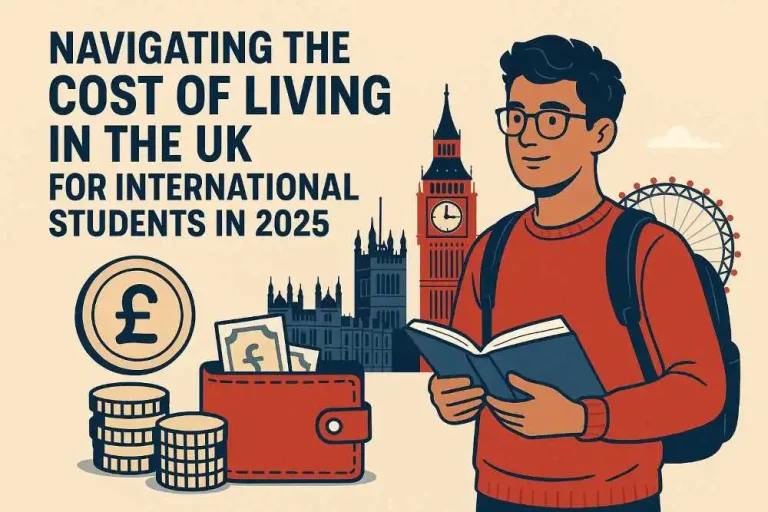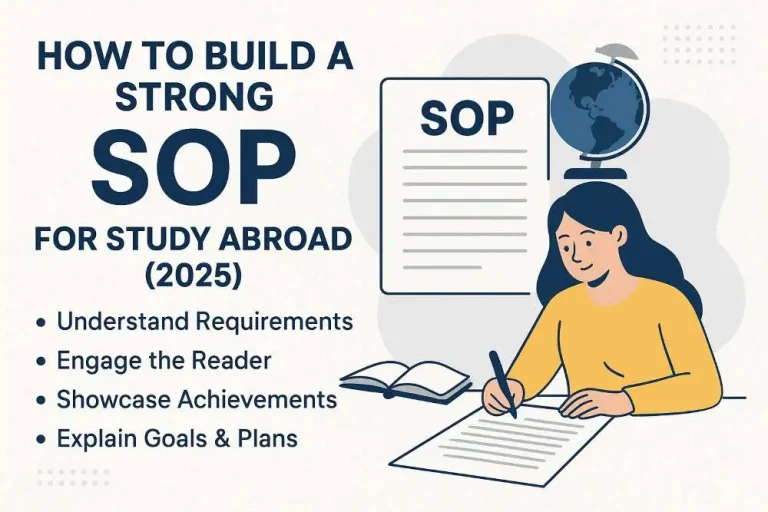Are you an international student aiming to study in the UK and wondering which courses will maximize your chances of employment after graduation? The post study work visa UK scheme, known officially as the UK Graduate Route visa, offers a golden opportunity for graduates to live and work in the UK after completing their studies. But choosing the right course can significantly affect your post-graduation employment prospects.
In this article, we’ll explore the UK courses for international students that offer the best post-study work opportunities, explain the post study visa UK requirements, and break down everything you need to know about the post study work visa UK eligibility and the post graduation work permit process.
What Is the Post Study Work Visa UK?
The post study work visa UK, officially called the UK Graduate Route visa, allows international students who have completed a degree in the UK to stay and work, or look for work, for up to two years after graduation (three years for doctoral graduates). This visa is an excellent chance to gain valuable work experience in the UK job market.
- Duration: 2 years (Bachelor’s and Master’s graduates), 3 years (PhD graduates)
- Eligibility: Students must have completed a degree at a UK Higher Education Provider with a valid Student Route visa
- Cost: The UK graduate visa cost is £715, plus the Immigration Health Surcharge
For detailed eligibility and requirements, visit the official UK government website.
Why Choose Courses with High Post-Study Work Opportunities?
Many international students want to study courses that lead directly to jobs after graduation. With the post study work visa requirements in mind, certain disciplines have better employment rates due to UK labor market demand, visa sponsorship opportunities, and skill shortages.
Choosing such courses increases your chance of securing a job within the visa period, boosting your long-term career prospects.
Top UK Courses for International Students with Strong Post-Study Work Prospects
Based on UK government labor market data and employer demand, here are some of the most promising courses for international graduates seeking employment after graduation:
| Course Category | Popular Degrees | Post-Study Work Opportunities |
|---|---|---|
| Engineering & Technology | Civil, Mechanical, Electrical, Computer Engineering | High demand in infrastructure, manufacturing, and IT sectors. Often leads to sponsored skilled worker visas. |
| Computer Science & IT | Software Engineering, AI, Data Science, Cybersecurity | UK has a tech skills shortage; graduates find opportunities in fintech, software, AI, and cybersecurity. |
| Healthcare & Medicine | Nursing, Pharmacy, Public Health, Biomedical Sciences | Critical shortages in NHS staff increase demand for healthcare graduates. |
| Business & Finance | MBA, Accounting, Finance, Marketing | Strong job market in London and financial hubs; roles in banking, consulting, and corporate sectors. |
| Natural & Physical Sciences | Environmental Science, Physics, Chemistry | Growing sectors related to green energy and R&D offer post-study jobs. |
| Creative Arts & Design | Animation, Graphic Design, Film Studies | Opportunities in media, entertainment, and digital content creation industries. |
Data Insights: Employment After Graduation in the UK
- According to the Higher Education Statistics Agency (HESA), about 85% of international graduates secure employment or further study within 6 months of graduation.
- Fields such as computer science and engineering show employment rates exceeding 90%.
- The UK government’s Shortage Occupation List includes roles commonly filled by graduates in STEM, healthcare, and digital sectors, facilitating easier visa sponsorship beyond the Graduate Route.
Post Study Work Visa UK Eligibility: Key Requirements
To qualify for the post study work visa UK, you must:
- Have completed a degree or other eligible qualification at a UK university or college licensed by the Home Office
- Hold a valid Student Route visa at the time of application
- Apply within the UK before your Student visa expires
- Provide proof of successful course completion (transcripts, degree certificate)
How Does the UK Graduate Route Visa Work?
- You can work in any job, full-time or part-time, including self-employment
- No sponsorship required during this visa period
- You can switch to other work visas (e.g., Skilled Worker visa) if you find a qualifying employer
- The visa cannot be extended beyond the set period (2 or 3 years)
UK Graduate Visa Cost Breakdown
| Expense | Cost |
|---|---|
| UK Graduate Route Visa Fee | £715 |
| Immigration Health Surcharge (per year) | £624/year (typically £1,248 for 2 years) |
| Total Estimated Cost | ~£2,000 |
Countries with Post Study Work Visa Similar to the UK
The UK is one of several countries offering post-study work permits, alongside:
- Canada: Post-Graduation Work Permit (PGWP)
- Australia: Temporary Graduate Visa (subclass 485)
- New Zealand: Post Study Work Visa
- Germany: Job Seeker Visa for graduates
The UK’s Graduate Route stands out due to its 2-year duration and flexibility.
Tips to Maximize Employment After Graduation in the UK
- Choose courses aligned with UK labor market demands (STEM, healthcare, business)
- Gain relevant work experience through internships and placements during studies
- Network via university career services and professional events
- Learn about visa transition options, such as switching to a Skilled Worker visa
Conclusion
The post study work visa UK presents an incredible chance for international graduates to gain UK work experience. To maximize this, select courses aligned with UK market needs—particularly in STEM, healthcare, and business fields. Understanding post study visa UK eligibility and planning your career path early can make your UK study and work journey a successful one.
Bookmark this guide, share it with friends planning to study in the UK, and comment your thoughts or questions below!
FAQ
-
What is the duration of the post study work visa UK?
The visa allows graduates to stay and work for up to 2 years after graduation (3 years for PhD holders).
-
Can I apply for the post study visa UK from outside the country?
No, applications must be made from within the UK before your current Student visa expires.
-
Which UK courses have the highest chances of job offers after graduation?
Courses in computer science, engineering, healthcare, and business are among those with the highest employment rates.
-
What are the post study work visa UK eligibility requirements?
Completion of a degree at a UK university with a valid Student Route visa and application within the UK before the visa expires.
-
Can I work full-time during the post graduation work permit period?
Yes, you can work full-time, part-time, or be self-employed under the Graduate Route visa.
-
How much does the UK graduate route visa cost?
The visa fee is £715 plus an Immigration Health Surcharge of approximately £624 per year.
-
Does the post study work visa UK lead to permanent residency?
The Graduate Route visa itself does not lead directly to settlement but provides work experience that can help transition to visas eligible for permanent residency.
-
Are there restrictions on the type of job I can do on the post study work visa?
No, you can work in any sector or job type.
-
What happens after the post study work visa expires?
You must either leave the UK, switch to another visa category (such as Skilled Worker visa), or continue your studies.
-
Can international graduates get sponsored by UK employers after the Graduate Route?
Yes, many graduates secure Skilled Worker sponsorship if they have skills in demand.








